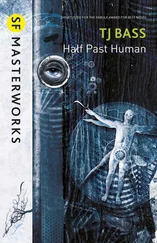Venus was a whole other matter—a planet that could be the jewel of the solar system if only its harsh atmosphere could be removed. The scientists on the Governing Council had their hopes set on a plan that had been designed almost half a century earlier. They wanted to use nuclear detonations to knock the Hektor asteroid into Venus, the theory being that the resulting explosion would destroy the carbon dioxide atmosphere. Then the crackpots wanted to attach a gigantic rocket onto Jupiter’s moon, IO, and send it on a quarter-century long trip to Venus, where it would act as a sunshield and allow for the cooling of the planet. The whole process would take a century.
James’s success on Mars killed their plan, making it look needlessly elaborate in comparison. Now the pressure was on him to prove that his Venus idea could succeed as well, delivering results that were faster and better than those proposed by the Governing Council’s top minds. The first step was to send an SRS to the planet—it built the lab and the Zeus. The Zeus functioned on the same principles as the magnetic implants in everyone’s spinal cords; these implants created a magnetic propulsion and generated the protective fields that allowed people to fly—even through space. The Zeus would generate this same magnetic energy but would spin it like a propeller, creating a massive fan, thus forcing the atmosphere of Venus into space. The Zeus James would activate that day was just a prototype—a baby. If it functioned properly, James would signal the go-ahead to the SRS robots still on the surface to build another Zeus—one two kilometers high and the width of a football field, with the capability of removing the Venusian atmosphere in a matter of months.
It just needed to work today.
“Whenever you’re ready, James,” Old-timer said, smiling up at his young friend.
James was still floating about a dozen feet above the floor of the lab. “Okay. This is it. Keep your eyes on those meters. The numbers have to line up exactly as they do in the simulation. If you see anything amiss, you have permission to engage shut down. Everybody copy?”
“Aye, Aye, Cap’n,” replied Rich. The others likewise assented, albeit without Rich’s unnecessary seafaring pirate accent.
“Okay then. Let’s do it.”
The Zeus began to spin. It moved without noise, floating on magnetic energy. It quickly began to pick up steam. Before long, the movement caused the air in the lab to circulate into a breeze.
“Mmm…feels kind of nice,” Rich commented.
“Concentrate, guys,” James said, still looking straight up through the tinted roof of the dome.
The clouds were clearly starting to swirl. It was a magnificent sight. The clouds moved so slowly on Venus—to see them swirl as though a prairie summer storm were about to break sent chills down James’s spine.
“The momentum is right on track, boss,” Old-timer reported. “It’s exactly to the computer model—to the decimal point.”
“It has to be. I don’t want to take any—”
Suddenly, there was a flash of light—a crack of energy that went through James’s body before he lost consciousness. In the last second before he blacked out, he knew he was falling.
WAKING UP was suddenly a very difficult thing to do. Never in James’s life had he felt groggy before—his head ached—it was a frightening feeling. He knew pain—everyone felt pain from time to time. People couldn’t avoid the occasional spill every now and then, but the nans would release endorphins to minimize the pain and, whatever minor damage might be caused, be it a scraped knee or a bloody nose, was quickly repaired. This was different—this was a whole new experience.
James felt pain throughout most of his body; in his neck, in his back, and it shot down his legs—even his eyes hurt. He was looking straight up, through the dome. The clouds were still moving, but they had slowed considerably. He turned his head a little to the right to see that the Zeus had stopped spinning. “Thel? Old-timer?”
There was no response from the team.
Like a turtle on its back, he rocked his body from side to side to facilitate a turn onto his right side. He quickly regained his bearings; he had landed on a table, denting it with the impact of his body. He struggled to his feet and opened his mind’s eye, but nothing happened. “My God. I’m offline.”
He limped across the lab, past the now lifeless Zeus, and to his four friends. Each was unconscious, either slumped over in their chairs or sprawled on the floor. The first one he went to was Thel. “Thel? Thel!”
She began to stir.
“Can you hear me?”
She opened her eyes, but James could see the pain with which she did so. She groaned. “Wh-what happened?”
“Just relax for a second. Everything is okay, Thel. Just relax.”
Djanet began to move, quickly followed by Old-timer. James called over to both of them as he lightly stroked Thel’s face. “Are you guys okay?”
“What the hell—” Djanet began.
“I know this feeling,” said Old-timer. “This is exactly what a hangover used to feel like, way back when.”
“Oh my God!” Djanet suddenly exclaimed. “I’m offline!”
“We all are,” James replied. He left Thel and attended to Rich, who was just beginning to regain consciousness.
“What happened?” Thel asked.
“I remember a flash,” Old-timer said, struggling to develop a hypothesis. “I think our synapses might have been overloaded.”
“Electrical charge?”
“But where did it come from?” asked Djanet.
“I don’t know,” James answered.
“The numbers were normal,” Old-timer reported as he rubbed a bruise on his elbow.
“Anyone notice how hot it’s getting in here?” Rich said, still groggy.
“Oh no—the whole lab is offline!” Djanet realized.
“Don’t panic,” Old-timer said, suddenly showing his hard-won wisdom and maturity.
“Our nans must have been overloaded by the blast. The connection is severed—everything in the lab has shut down,” Thel concluded.
“The airlocks aren’t run by computer, and neither is the air circulation system. We’re okay, but it’s going to get hot in here, real fast,” Old-timer answered.
James walked away from Rich and lifted off into the air. He stopped, hovering about five feet above the others. “Looks like we’re going to be fine. The flight systems are still operational.”
“Oh thank God,” Rich began. “I thought I was going to have to get used to a new life as a roasted entrée!”
“How can the flight systems still be operational if everything was overloaded?” Djanet asked.
“They’re larger systems. Each individual nan is its own microscopic computer. A surge of electricity that’s powerful enough to knock a human unconscious is powerful enough to severely damage a nan. The flight systems, luckily, were able to absorb the surge, and since they are intranet systems rather than Internet systems, we can still access them,” James answered.
“I thought we didn’t need luck!” Rich retorted.
“We did today,” Old-timer replied. “Math just didn’t cut it.”
“How did this happen, Commander?” Djanet asked.
“I don’t know.”
“Whatever it was, it wasn’t in the model,” Thel observed.
“Yeah. Math screwed us,” Rich replied. “Hey, even if the flight systems are working, without the Net, how are we going to find our way home?”
“I’ll take care of that,” James replied.
“How?” asked Thel.
“Astronomy.”
“Let’s hope astronomy still works,” Rich said, now standing and dusting himself off. “I don’t know if I trust any of the high school subjects anymore.”
Читать дальше












